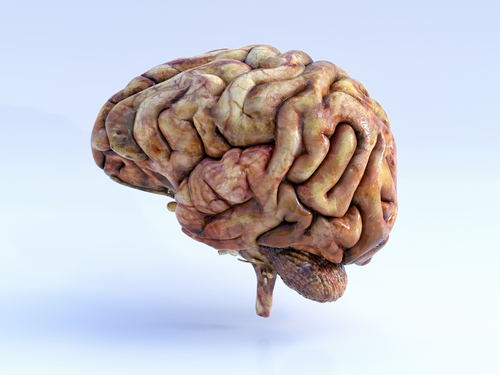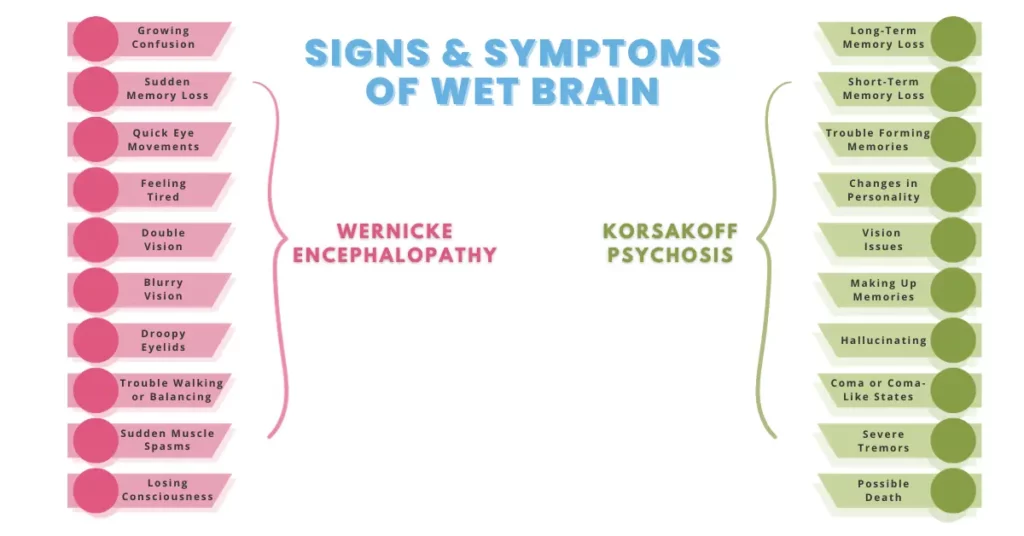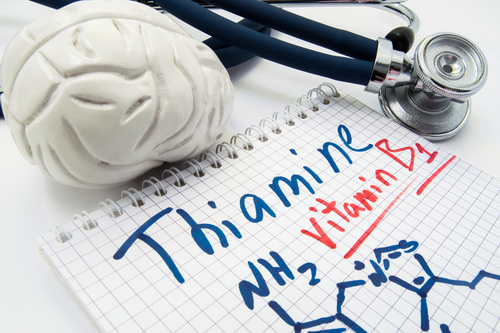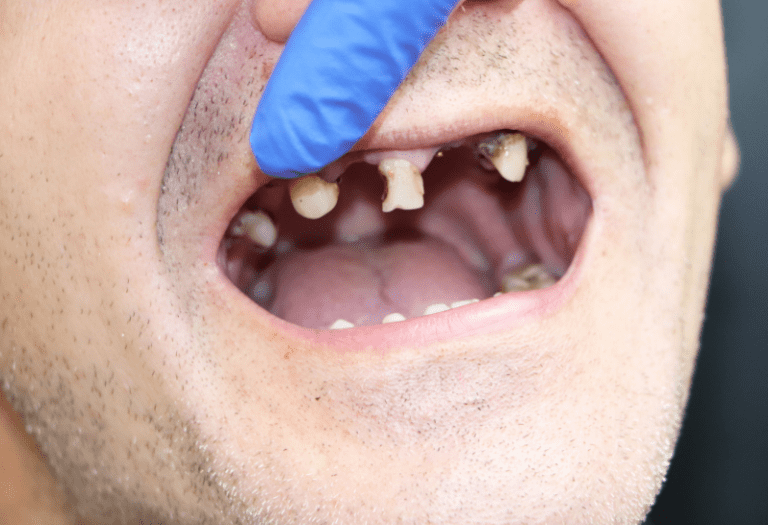When most people think of alcoholism, they picture angry or abusive drinkers who can’t mentally cope without alcohol. Individuals might also think of hangovers, liver issues like cirrhosis or hepatitis, or disoriented and blurred vision. However, most people don’t know about Wernicke-Korsakoff syndrome, also called wet brain, which can cause permanent memory issues, vision problems, and cognitive dysfunction.
This article explains what wet brain is, the different symptoms and stages of wet brain, and how to prevent and treat it.
What Is Wet Brain?
Wet brain is a serious neurological condition caused by excessive and long-term binge drinking, leading to mental and physical issues, including memory problems, tremors, blurred vision, delusions, and hallucinations. Since most symptoms of wet brain can be mimicked by alcohol withdrawal or inebriation, individuals must be sober to be diagnosed with wet brain, medically called Wernicke-Korsakoff Syndrome (WKS).
Named after the two physicians who studied alcohol and psychosis, Sergei Korsakov and Carl Wernicke, wet brain is directly linked to thiamine deficiency (vitamin B1) and affects the thalamus, which controls your autonomic nervous system and the hypothalamus, which controls sensory and motor signals. Fortunately, not everyone who abuses alcohol develops wet brain syndrome, as only 1-2% of the general population suffer from it. However, 12-14% of individuals with alcohol use disorder develop wet brain, and 80% lack thiamine.
Read more: Recognizing 10 Signs of a Functioning Alcoholic

Stages of Wet Brain
Wet brain is broken into two stages: Wernicke encephalopathy, which is the initial acute phase, and Korsakoff amnesic syndrome, which is the chronic and long-lasting stage. The first stage of wet brain can be treated and cured by immediate medical intervention and cessation of alcohol consumption. However, if left untreated or unnoticed, it can quickly advance to the next and permanent stage.
Stage 1: Wernicke’s Encephalopathy
The initial phase of wet brain syndrome is known as Wernicke’s encephalopathy (WE), which is a short-term neurological condition. WE is characterized by three key symptoms: confusion, issues with muscle coordination while standing or walking, and problems with vision.
People in this first stage might experience paralyzed eye nerves, leading to involuntary eye movements, drooping eyelids, and double vision. Coordination troubles can result in a staggered or unstable walk. Not all three symptoms need to be present for a WE diagnosis, which has caused almost 80% of WKS cases to go unnoticed.
Note: Wernicke’s encephalopathy can also be caused by dietary deficiencies, excessive vomiting, eating disorders, and the effects of chemotherapy
Stage 2: Korsakoff Psychosis
Around 80% to 90% of people who misuse alcohol and experience Wernicke encephalopathy (WE) will likely move on to the next phase of wet brain, called Korsakoff’s psychosis. This type of brain disorder happens if the first stage isn’t treated in time or diagnosed correctly. Korsakoff’s psychosis is sometimes called “alcoholic dementia” or “alcohol amnestic disorder.”
Korsakoff’s psychosis can lead to neurological symptoms such as memory problems like not remembering things from the past (retrograde amnesia) and having trouble making new memories (anterograde amnesia). People might even make up stories to fill gaps in their memory, a phenomenon called confabulation. Sadly, when wet brain reaches Korsakoff’s psychosis, it can’t be reversed. But it’s still very important to stop drinking, even though the condition is permanent.

Is Wet Brain Preventable?
Yes, wet brain is preventable if you moderate your alcohol intake, talk to your doctor about unusual symptoms, and eat a balanced diet with plenty of vitamin B1. Vitamin B1 helps generate enzymes that convert sugar into energy, which creates new neurotransmitters and genetic matter for cells. But your body doesn’t produce thiamine on its own, so you’ll need to consume a regular balanced diet. Several studies show that alcohol abuse is the number one cause of thiamine deficiency in the United States. This is usually due to:
- Malnutrition: It can be easy for individuals with alcohol use disorder to neglect a healthy diet as their preoccupied with drinking. Even if they eat well, alcohol can induce effects like vomiting, diarrhea, and increased urination, preventing thiamine from being absorbed.
- Enzymes: Another reason for thiamine shortage is alcohol’s harm to the liver. Too much alcohol can make the liver struggle to properly use thiamine in the body’s cells, which can cause problems with thinking and physical health.
Read more: How To Quit Drinking Cold Turkey
20 Signs & Symptoms of Wet Brain
Recognizing signs of a wet brain is simplest when the effects of alcohol and heavy drinking persist even when the person is not drinking.
Wernicke encephalopathy signs include:
- Growing confusion
- Sudden memory loss (which worsens as the condition progresses)
- Quick eye movements
- Feeling tired
- Double vision
- Blurry vision
- Droopy eyelids
- Trouble with balance or walking (ataxia)
- Sudden muscle spasms or tremors
- Losing consciousness

Korsakoff psychosis symptoms usually emerge after the initial stage signs develop. These symptoms consist of:
- Long-term memory loss
- Short-term memory loss
- Trouble forming new memories
- Changes in personality and mood
- Vision issues
- Making up memories (confabulation)
- Hearing or seeing things that aren’t there (hallucinations)
- Coma or coma-like states
- Severe tremors affecting walking and basic actions
- Possible death
How To Treat Wet Brain
The first action to address wet brain syndrome is to seek immediate medical help. Wet brain treatment might involve receiving Vitamin B1 through an IV or as a supplement to boost thiamine levels and improve symptoms. Other assessments involve cognitive assessments, blood tests, and screenings of the nervous system, like eye movement, muscle strength, and coordination. MRIs might also be done to find any brain lesions that could appear due to the disease.
If medical care is received promptly, symptoms can be turned around. Even though second-stage symptoms are not reversible, medical experts will still provide extra thiamine to stop the disorder from getting worse. The treatment might not lessen the symptoms, but it can keep them from becoming deadly.
While 25% of people fully recover after developing a wet brain, 50% might have minor improvement, and 25% will not recover. If there’s an improvement, it’s usually seen within the first two years of treatment after wet brain develops. Although wet brain life expectancy depends on various factors, around 10 or 20 percent of those with Wernicke-Korsakoff Syndrome might not survive if the issue isn’t treated.
How To Treat Alcohol Use Disorder
If someone is struggling to quit drinking and is on the path to wet brain, they probably have an alcohol use disorder that will continue and make cognitive, psychological, and physical symptoms worse, potentially leading to death. It’s important for these individuals to talk to addiction specialists who focus on alcohol use disorders and any contributing underlying mental health disorders. Alcohol addiction treatment usually involves individual and group therapy sessions, an initial detox program, and holistic healing modalities to help with cravings and negative emotions.

Contact Knoxville Recovery Center
If your or someone you know is struggling with alcohol abuse or is showing signs of wet brain syndrome, contact Knoxville Recovery Center. Our alcohol addiction treatment program can help you overcome the life-consuming effects of substance abuse and refer you to one of our clinical partnerships to help treat symptoms of wet brain. Call today, and one of our admissions agents can explain how our programs work, the insurance we accept, and more.








